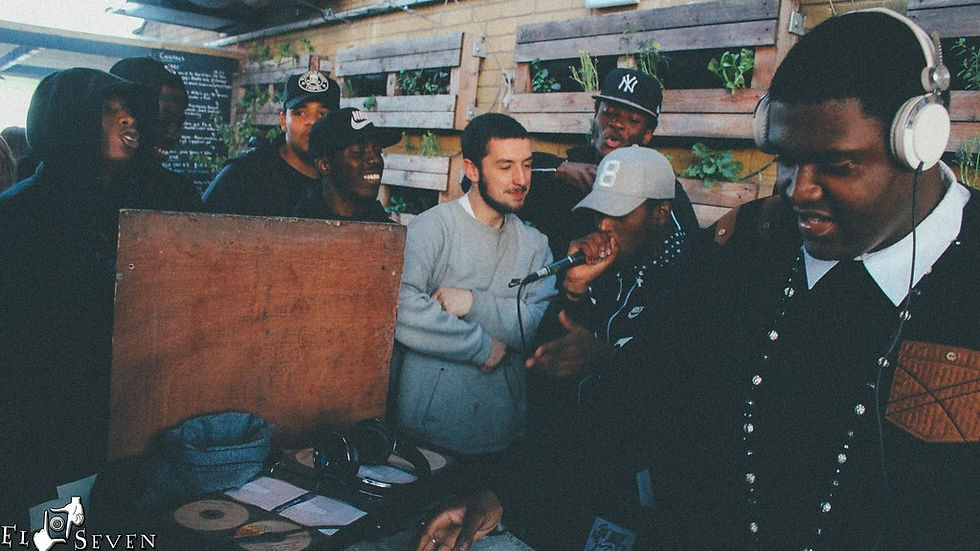The Resurgence of UK Black Radio
- Denique Akinwumi

- Oct 22, 2021
- 2 min read
Updated: Nov 16, 2022
The impact online radio stations are having on the Black British radio scene is indisputable. If there was ever a time to divert from mainstream radio and support Black-owned Radio, now is the time.
Towards the end of 2020, British DJ and radio presenter MistaJam announced on Instagram that he had decided to leave his drivetime spot at BBC Radio 1 and BBC 1XTRA after a longstanding 15-year journey. This reminded me of the importance of Black presenters and DJs on radio when I was younger, and how they shaped and validated not only my interests, but Black musical interests collectively.
As Black British young adults, Choice FM floods us back with warm, nostalgic memories of community, good music and a space where we could listen to people like us. Choice FM was more than a radio station—for many, it acted almost as a cultural body that ran through the Black community within the UK. It brought a sense of belonging through listening to both Black music, as well as presenters and DJs arguing over whether Nelly’s plaster was a look. Choice FM was owned by the publishers of Root magazine - a Black culture journal from the 1970s—a big part of the creative scene in Brixton. Choice FM was solely rooted in Black creativity and it was the first licensed platform on mainstream radio to push music of Black origin.
However, in October 2013 we mourned the loss of Choice FM after it was branded as Capital Xtra. The space seemed replaced with yet another mainstream pop music station and has been criticised as an attempt to further eradicate Black culture from mainstream media. Although this was a cultural loss for the Black community, I believe it helped birth a shift in the landscape of Black radio.
With the conception of online, Black-owned radio stations such as No Signal and NTS Radio, we are seeing genres such as garage, grime and rap being welcomed and embraced. These online-only stations can target and reach their digital native audience and infiltrate the culture in a way that was not possible with the model of traditional radio. Not only do these platforms give independent Black artists and DJs a space to be heard, during a period where creatives are arguably being hit the hardest, but they also facilitate a hub of young Black creatives.
We have always had Black radio presenters, such as MistaJam, Richard Blackwood and Trevor Nelson, but this has traditionally been under mainstream radio, commonly monopolised and white-owned radio stations. Stations, such as No Signal are crucial in adapting to the way we use technology and transforming the landscape of Black radio. Not only is there now a wider pool of Black creatives in radio, but we are also seeing Black female DJs and presenters, such as Snoochie Shy and Henrie, thrive in these alternate spaces.
While emulating the vibe of pirate radio; online and live radio shines a light on the re-emergence of Black radio. There is no denying the fact that what we consider Black music is changing, and these new platforms are indisputable in the dissemination of underground music. If there is ever a time to get behind Black radio, it's now.


Comments